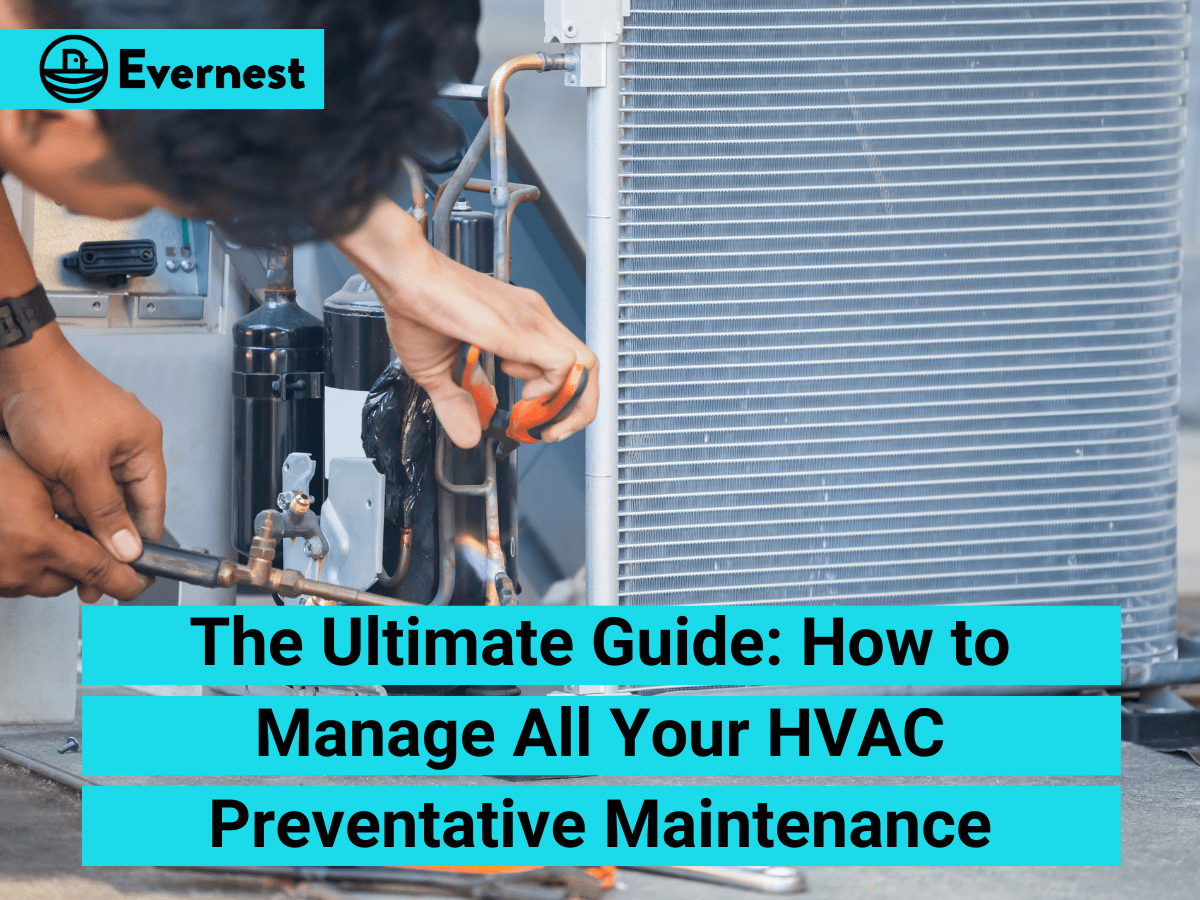As a landlord, your responsibilities extend far beyond just collecting rent and managing tenants. One often overlooked but critical aspect of property management is HVAC (Heating, Ventilation, and Air Conditioning) preventative maintenance.
HVAC systems are the backbone of tenant comfort and safety. Neglecting them can lead to costly repairs, decreased energy efficiency, tenant dissatisfaction, or worse, so it is critical to understand and stay on top of the HVAC system in your rental property. In this guide, we’ll explore the importance of HVAC preventative maintenance for landlords and provide practical tips to help you keep your properties comfortable and cost-effective!
Understanding HVAC Systems in Rental Properties

HVAC systems come in various forms, from central air conditioning to heat pumps and furnaces. Understanding the components and functions of these systems is essential for effective maintenance. Components such as filters, coils, compressors, and thermostats all play a role in keeping the property comfortable.
Each component in an HVAC system requires regular attention to ensure the system works well and lasts. Filters, for instance, act as the first line of defense against airborne particles and pollutants. Over time, these filters can become clogged, leading to decreased airflow and reduced efficiency. Regularly replacing or cleaning filters is crucial to maintaining healthy indoor air quality and preventing strain on the system.
Coils, both evaporator and condenser coils, are another critical element of HVAC systems. These coils facilitate the transfer of heat, allowing the system to cool or heat the air as needed. However, they can accumulate dirt, dust, and debris over time, hindering their ability to function efficiently. Regular cleaning of coils helps maintain proper heat exchange and prevents energy waste.
Compressors are the heart of air conditioning systems, responsible for circulating coolant and facilitating the cooling process. Any issues with the compressor can lead to decreased cooling capacity and even system failure. Regular inspections and maintenance can help identify potential compressor problems early, preventing costly repairs down the line.
Thermostats serve as the control center for HVAC systems, regulating temperature settings based on tenant preferences. Calibrating thermostats and ensuring they function properly is essential for maintaining tenant comfort and optimizing energy efficiency.
Beyond these components, ductwork, coolant levels, electrical connections, and drainage systems also require regular inspection and maintenance to ensure the smooth operation of your HVAC system.
Creating a Preventative Maintenance Plan
An HVAC preventative maintenance plan encompasses a range of proactive measures aimed at identifying and addressing potential issues before they can get any worse and cause significant damage. It should include scheduled inspections, tune-ups, and adjustments to ensure that the system operates at peak performance year-round. For landlords, this means taking a comprehensive approach to maintenance tasks, including but not limited to the ones we mention here:
- Inspect the furnace regularly during the off-season to assess its condition and identify any wear and tear that may occur when it isn’t being used regularly.
- Check the coolant levels in air conditioning units to ensure that the system is equipped to handle more usage when temperatures rise.
- Test the strength of the HVAC system for temperature and output to gauge its efficiency and effectiveness in maintaining the levels set by tenants.
Consider upgrading the thermostats in your rental property to smart thermostats to improve both the functionality and energy efficiency of your HVAC system. Smart thermostats offer features such as programmable schedules, remote access, and energy usage tracking, empowering tenants to reduce their energy consumption. HVAC monitoring systems and energy usage tracking tools can also help optimize system performance and reduce energy costs.
Incorporating these preventative maintenance measures into a comprehensive plan not only safeguards the integrity of the HVAC system but also contributes to the overall well-being of your rental property and tenants.
Hiring Professional Help vs. DIY HVAC Maintenance
As a landlord, you can undertake simple maintenance tasks yourself, such as changing air filters, cleaning vents and ducts, checking for leaks, and monitoring thermostat settings. These tasks are relatively easy to perform and can significantly extend the lifespan of HVAC systems.
However, some crucial tasks require the expertise of HVAC professionals. Finding reputable contractors, conducting interviews, and establishing a long-term relationship with a reliable service provider will help you ensure the long-term health of your HVAC system and ease the burden of maintaining this all-important system.
Addressing Tenant Maintenance Responsibilities
It’s also important to consider what responsibilities you expect your tenants to undertake when it comes to preventative maintenance tasks. Educating tenants about basic HVAC care, encouraging prompt reporting of issues, and setting clear expectations regarding their maintenance responsibilities in the lease agreement can go a long way in ensuring the smooth operation of the HVAC system in your property.
Budgeting for HVAC Maintenance Costs
HVAC maintenance costs can easily stack up if you wait until major upgrades or replacements are necessary. Investing in preventative maintenance upfront can save you a lot of money down the road. That’s why we always recommend planning for routine maintenance and repairs for your property by developing a budget to cover these things.
Setting up a repairs and maintenance budget and contingency fund is the best way to gain an accurate understanding of the costs associated with maintaining your rental property and ensuring you have the funds to do so.
Conclusion
HVAC preventative maintenance is an incredibly important aspect of property management that should not be overlooked. By understanding HVAC systems, creating a preventative maintenance plan, educating tenants, and budgeting for expenses, you can ensure your rental property remains comfortable, efficient, and cost-effective for years to come.
Take proactive steps today and schedule preventative maintenance through Evernest to save time and money and prevent future failures.
Already an Evernest owner? Sign up here.


